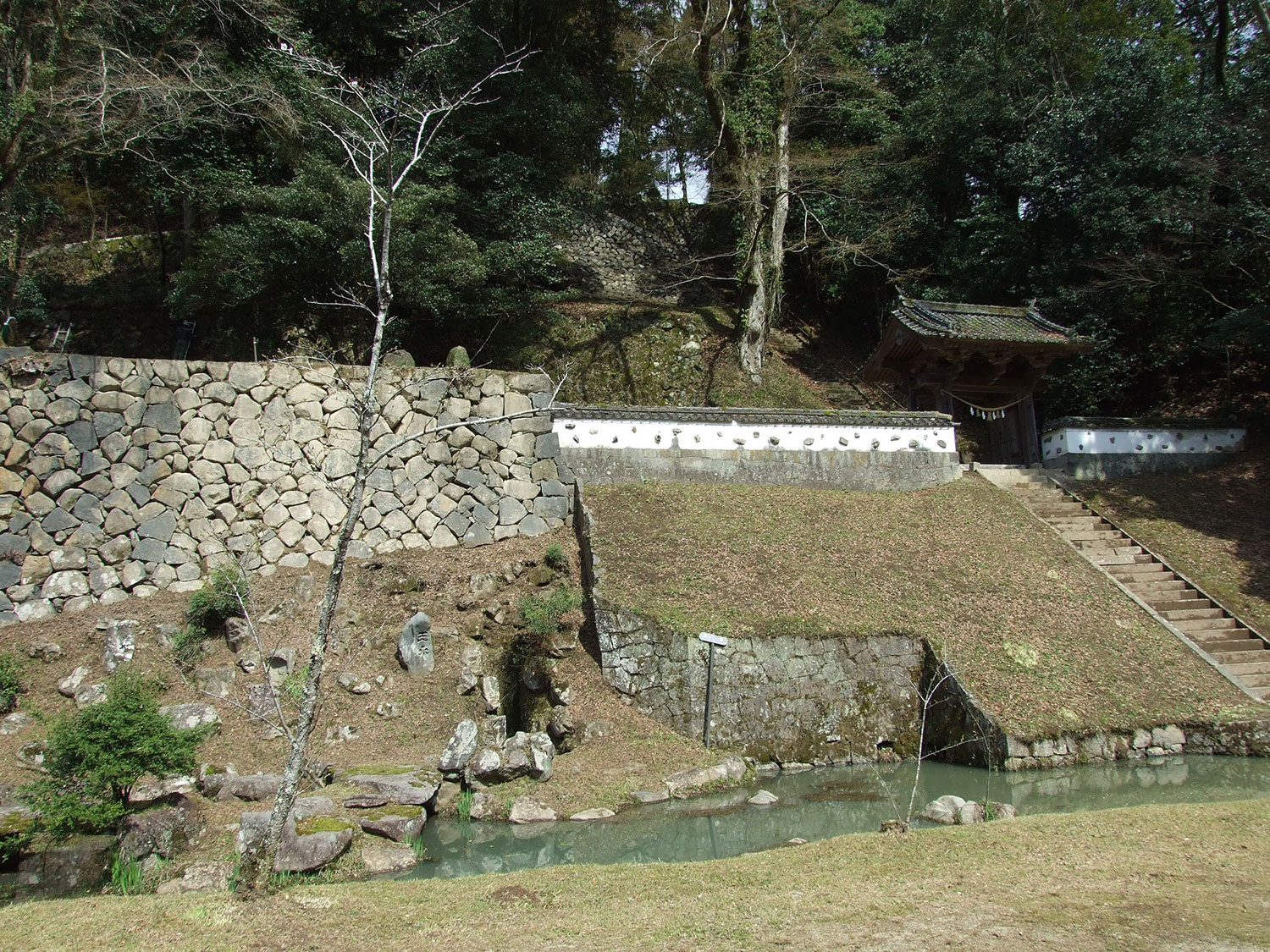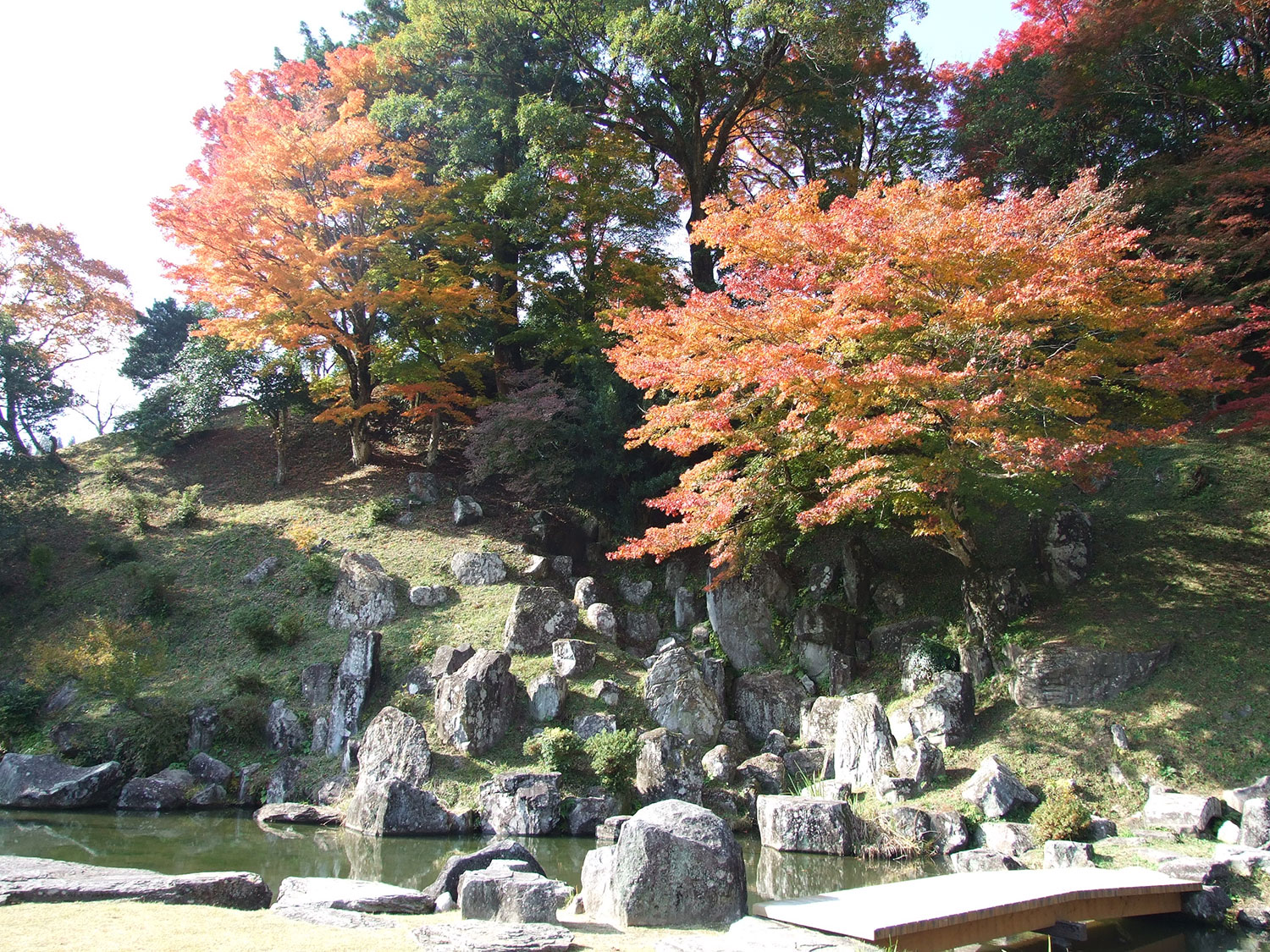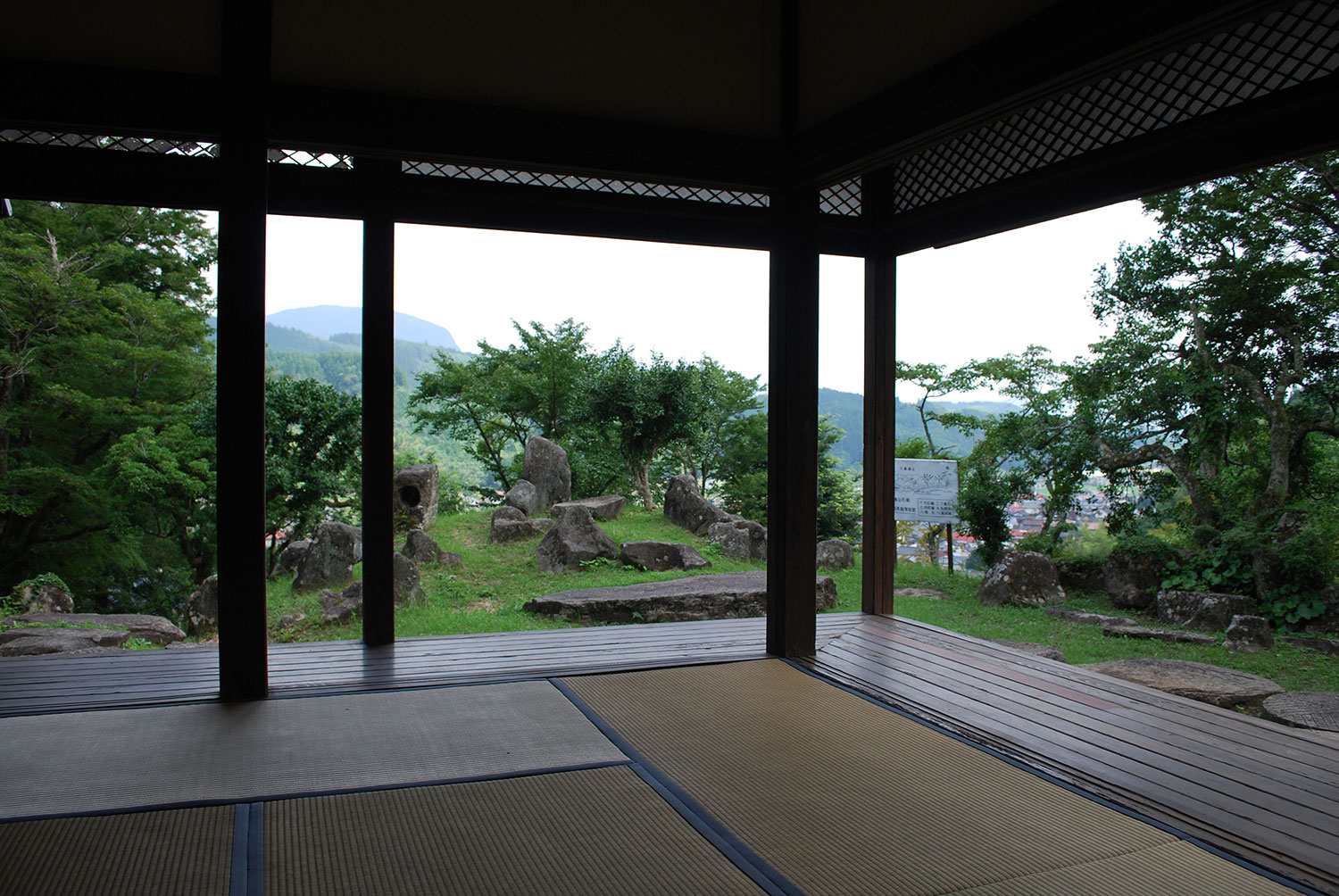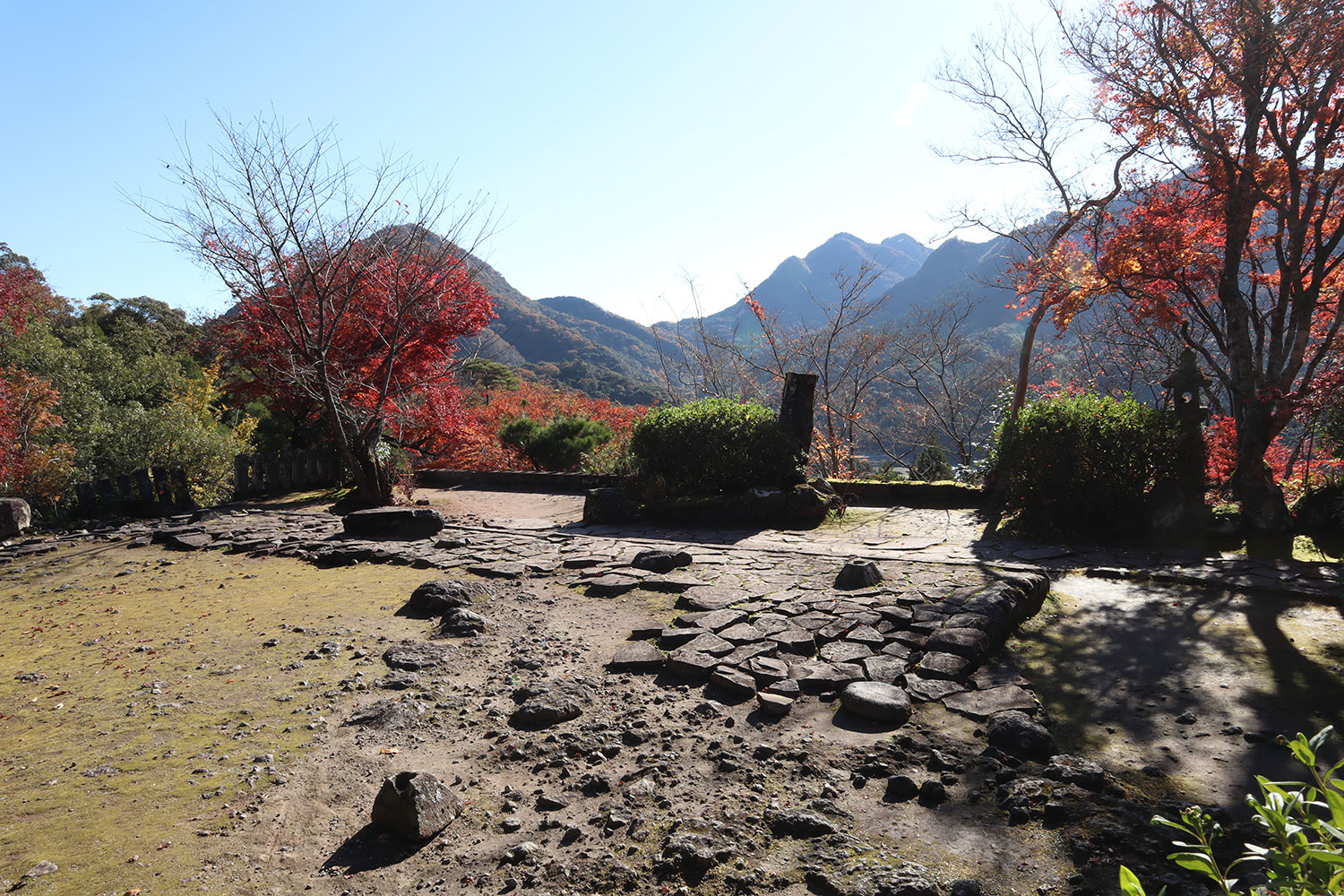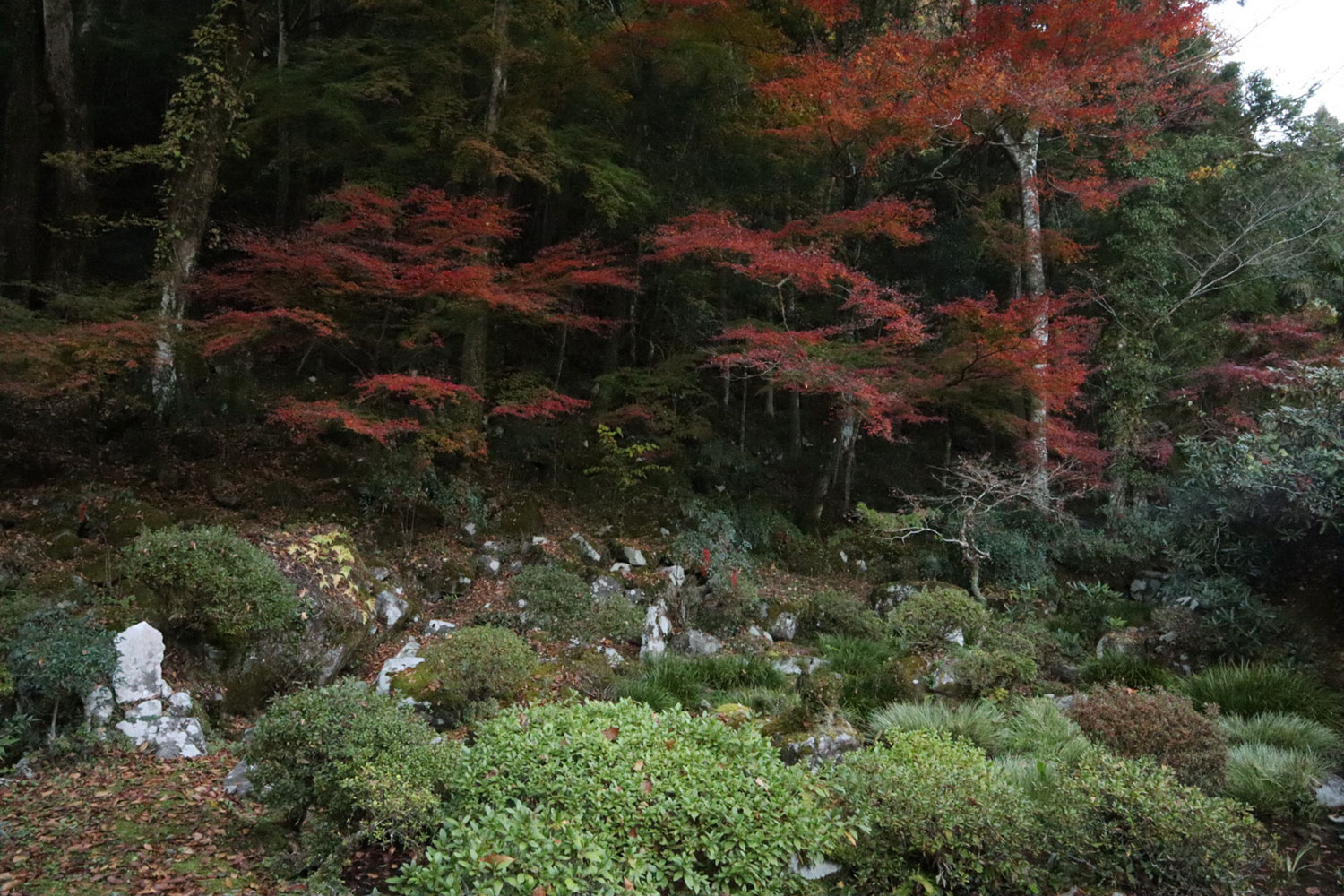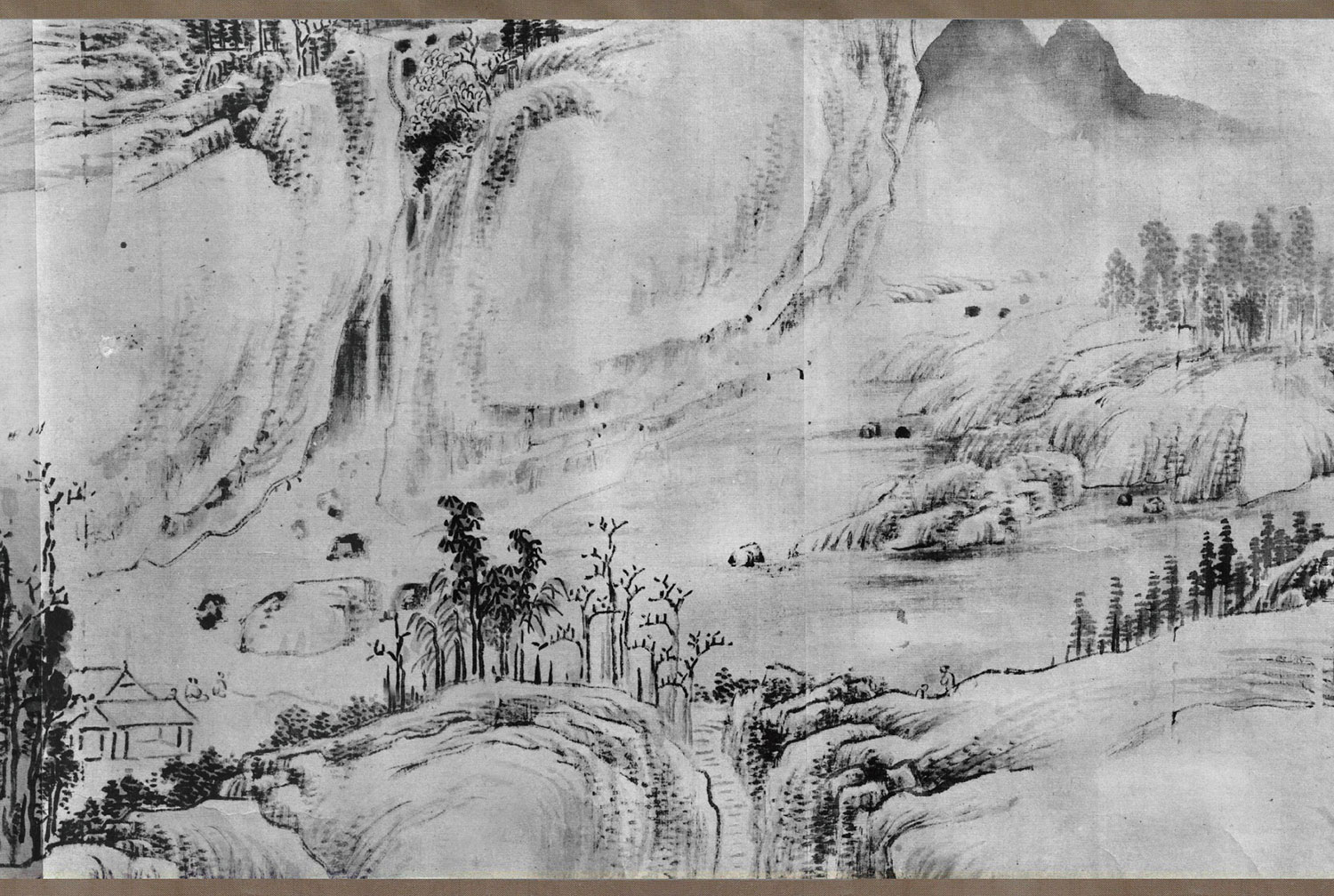
頼山陽が描いた絵巻ー耶馬溪図巻記ー
耶馬渓の中に神仏をみた人々は、やがてその美に魅せられます。そこには日本人が憧れた山水画の世界がありました。 江戸時代後期、耶馬渓を訪れた当代きっての学者で人気作家・頼山陽(らいさんよう)は、耶馬渓の風景に感じ入り、ひとつの絵巻をつくりあげました。「耶馬溪山天下無」(耶馬渓ほどの絶景は天下に二つとない)。頼山陽の詩の一遍が耶馬渓の名の由来となりました。
そして、風景を手元に置かんと願った人々の思いは、自然と一体となった庭園として形になりました。
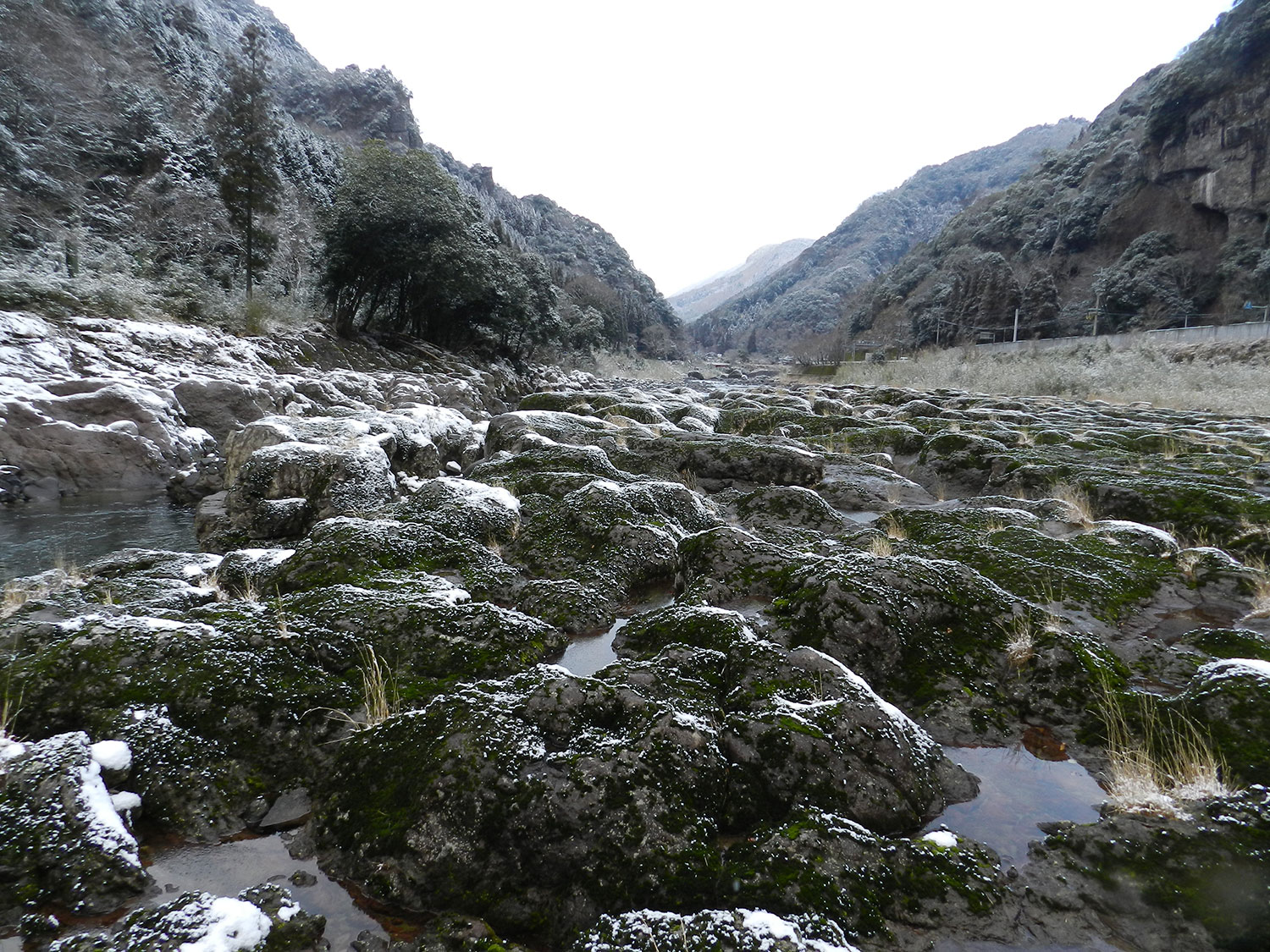
溶岩が冷え固まった川底
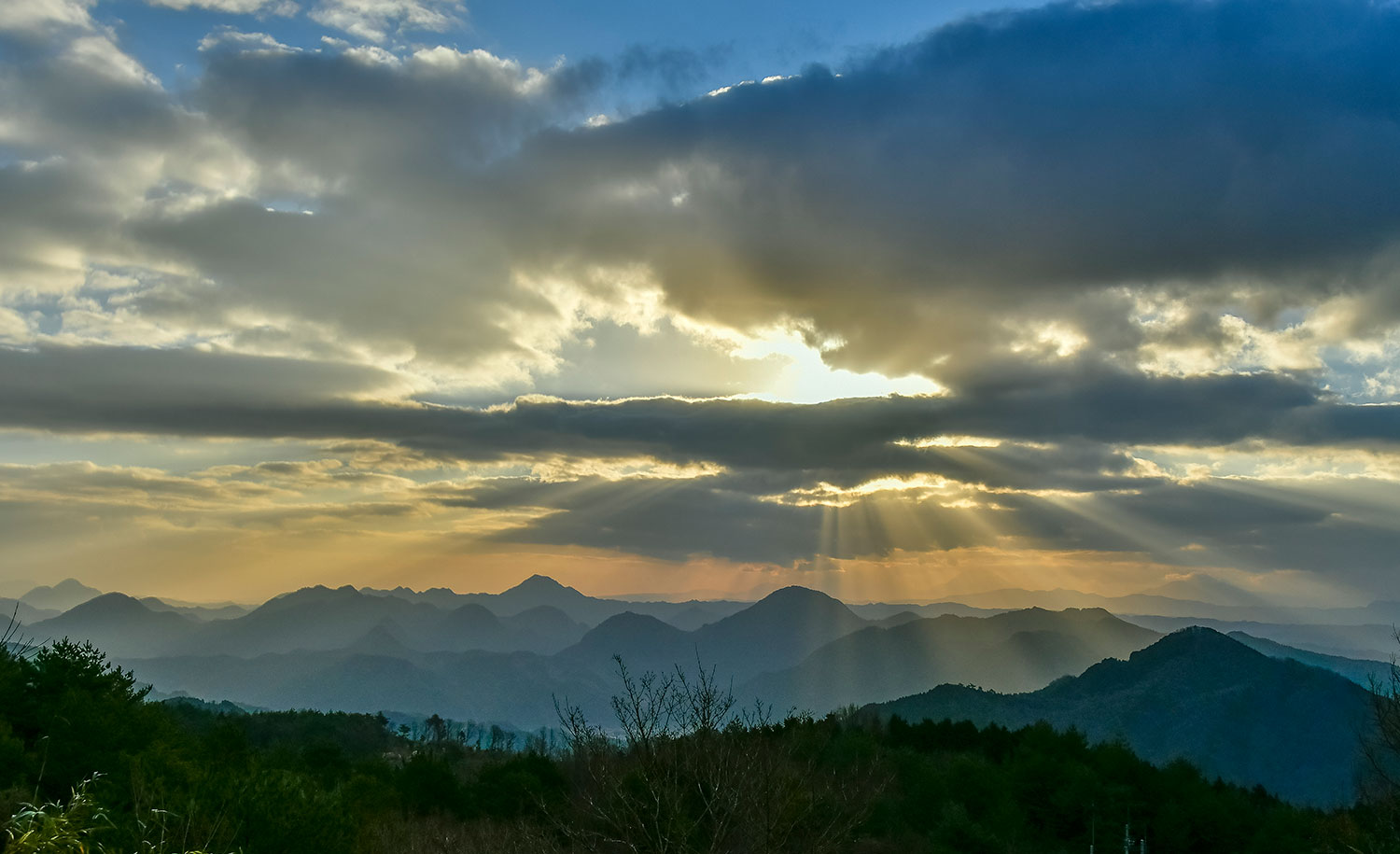
耶馬渓の山なみ
頼山陽の描いた「耶馬溪図巻記」は評判となり、自然美を愛で、絵を描き漢詩を詠むのがブームとなっていきました。頼山陽は謳います。「山は水を得ざれば生動せず、石は樹を得ざれば蒼潤ならず」。文人墨客たちは、彼の描いたはるか耶馬渓の地に思いを馳せました。
お城のようなー清水御門御茶屋庭園ー
巨石を配したー藩主御殿庭園ー
城にあこがれた玖珠の藩主久留島通嘉は、御殿横の丘陵に城郭を思わせる神社を完成させ夢を重ねます。幾重にも石垣が巡る城のような表門には静寂の庭を、御殿には巨石を大胆に配した庭を。そして、その頂点にある茶室「栖鳳楼(せいほうろう)」には周囲の景色を取り込む庭を造りました。ここは藩主の夢が形になった庭園です。
茶室からの眺めー栖鳳楼庭園ー
藩主の茶室跡ー指月庵庭園ー
中津の藩主小笠原長勝は、羅漢寺奥の断崖のもとに、はりつくように茶室「指月庵(しげつあん)」を建てました。山谷と古羅漢を望む指月庵、メサの山並みと森城下町を望む栖鳳楼。二つの庭に立てば、眺望を茶室の庭として楽しんだ、二人の藩主の視点を楽しむことができます。
伝 雪舟庭
英彦山近くの山里に伝わる雪舟庭。背後の山との境がなく、石組みから続く山肌は、庭に奥行きを加えます。天然と人工の調和美、これこそが耶馬渓の真髄ではないでしょうか。
Next inspiration
Other content
Cutting Out the Scenery

The Emaki Scrolls of Rai Sanyo – Yabakei Zukan-ki –
The people who saw gods and buddhas in Yabakei were eventually enchanted by their beauty. Therein lied the world of shan sui paintings for which the Japanese people longed.
In the latter part of the Edo Period, the greatest scholar of the time and popular author, Rai Sanyo, visited Yabakei and, greatly inspired by the scenery there, created a single emaki scroll from that inspiration. “Yabakeisan Tenkanashi” (There is no other scenery so grand as Yabakei in all the world.) This piece of Rai Sanyo’s poetry became the origin of the name Yabakei.
The desire of the people to have that scenery close at hand then took shape as a garden united with nature.

A Riverbed Where Lava Cooled and Hardened

The Yabakei Mountain Range
The Yabakei Zukan-ki drawn by Rai Sanyo gained a reputation, and the act of admiring natural beauty, drawing pictures, and writing Chinese poetry became a popular trend. A line from Rai Sanyo’s poetry reads, “Without water, mountains lack vitality. Without trees, rocks do not become lush and green.” Writers and artists dreamt fondly of the far away land of Yabakei depicted in his drawings.
Like a Castle – Shimizugomon Ochaya Garden –
Arranged Megaliths – Hanshu-Goten Garden –
The feudal lord of Kusu, Michihiro Kurushima, was fond of castles and completed a shrine on the hill next to his court reminiscent of a walled castle to superimpose his dream on the area. He created a quiet garden at the front gate which resembled a castle surrounded by multiple stone walls and a garden with boldly arranged megaliths in his court. Finally, at the tea house called Seihoro at the top of the hill, he created a garden which brought in the surrounding scenery. This garden is the dream of that feudal lord given form.
The View From the Teahouse – Seihoro Garden –
The Ruins of a Lord’s Teahouse – Shigetsuan Garden –
The feudal lord of Nakatsu, Nagakatsu Ogasawara, built the tea house Shigetsuan underneath and up against the cliff behind Rakanji Temple. Shigetsuan, looking out over mountains, valleys, and Furu-Rakan, and Seihoro, looking out over the mesa mountain range and Mori Castle Town—visitors to these gardens can enjoy the point of view of these two feudal lords who enjoyed this view as their teahouse gardens.
Sesshutei (Sesshu’s Garden – Traditionally)
Sesshutei (Sesshu’s Garden) runs along the mountain hamlet near Mt. Hiko. There is no boundary between the garden and the mountain behind it, and the mountain surface connected with the arrangement of garden stones there adds depth to the garden. The harmonious beauty of nature and human work together—is that not the essence of Yabakei?
Next inspiration
> episode 1 Listen Intently to the Pulse of the Land
> episode 2 See Gods and Buddhas in the Rock
> episode 3 Creating the Sacred Place of the Rakan
Other content

